
While Paul Kelly’s never broken big outside of Australia, he’s a beloved songwriter in his own country. He’s a member of the Order of Australia. His 1987 song ‘To The Door’ was included in the APRA list of Top 30 Australian songs from 1926 to 2001.
Introduction
Despite his lack of international success, he deserves comparison with major songwriters like Bob Dylan or Bruce Springsteen. He also taps into the Australian national psyche, writing songs about Australian icons (‘Bradman’, ‘Shane Warne’), locations (‘From St Kilda to Kings Cross’, ‘Adelaide’), and a beloved Christmas tune (‘How to Make Gravy’).
At his best, on his mid-1980s albums with the Messengers, Kelly combines the energy and rawness of pub rock with literate lyrics, not unlike Paul Westerberg in The Replacements. Later on he’s mellowed, moving into folk and country.
Consistency is a bane for Kelly. He’s been releasing high-quality albums for so long that it’s easy to take him for granted. He’s tried to expand his horizons. He dabbled in dub-reggae with Professor Ratbaggy and played bluegrass on 1999’s Smoke. But most of the time he’s firmly in his lane of thoughtful guitar-based tunes, tinged by folk and country.
Paul Kelly was born in Adelaide. His grandfather was a leading baritone for the La Scala Opera Company in Milan. Kelly’s had a surprisingly tumultuous personal life, struggling with heroin addiction. He released two albums in the early 1980s before rebooting his career with 1985’s Post.
I’ve covered fourteen of Kelly’s studio albums below – there are gaps between 2000 and 2014, and after 2018.
Paul Kelly Album Reviews
Talk

1981, not rated
Like Emmylou Harris and Warren Zevon, Paul Kelly had a false start to his career. He recorded two moderately successful albums with backing band The Dots in the early 1980s. He later disowned them, stating “I wish I could grab the other two and put ’em in a big hole”.
Judging from some TV clips from the era, Kelly’s early work is quirky and more upbeat than his more successful work. Trevor Lucas, formerly of Fairport Convention, produces one song.
Manila

1982, not rated
As its title implies, Manila was recorded in the Philippines’ capital. It was recorded in mid-1981, but it was delayed by a year, partly due to Kelly’s jaw being broken in an assault. Kelly later explained that he was influenced by The Clash‘s Sandinista! when recording Manila.
Post

1985, 8/10
Kelly’s life was at a low ebb in early 1985. His first marriage had broken up. The Paul Kelly Band, who’d replaced The Dots, had also split. He’d become involved in Melbourne drug culture, and lost his friend Paul Hewson, of the band Dragon, to a heroin overdose.
Kelly quickly recorded his solo debut in two weeks, self-funding the $3,500 cost. Often, there’s little more than Kelly’s voice and acoustic guitars – bands have made more ornate demos. But despite the circumstances, Kelly emerges as a songwriter on Post, right from the memorable guitar figure that opens ‘From St Kilda to King’s Cross’.
Despite Kelly’s songwriting prowess, the simple arrangements mean I don’t return Post as often as other records from Kelly’s peak. Four songs were reworked in full-band arrangements for his next record Gossip. The arrangements become more interesting later in the record. Kelly uses a rarely heard falsetto in ‘Blues for Skip’. ‘Satisfy My Woman’ ventures close to soul, while ‘You Can Leave Your Shoes Under My Bed’ is punctuated by saxophone breaks. Kelly’s songwriting skills shine through on plainly arranged songs like ‘Adelaide’ and ‘From St Kilda to Kings Cross’.
Post marks the emergence of Paul Kelly 2.0, and the beginning of a glorious run of records.
Gossip
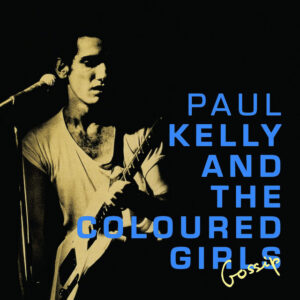
1987, 9/10
The almost-solo Post was an anomaly for Kelly – he’d usually worked with a band. After its success, he recruited The Coloured Girls, named for a line in Lou Reed’s ‘Walk on the Wild Side’. Some of The Coloured Girls had already played in the Paul Kelly Band before Post. Most notably, lead guitarist Steve Connolly plays with expertly directed passion that gives Gossip an edge. The Coloured Girls were rebranded as The Messengers for Kelly’s American releases, and would eventually take the name full time.
Gossip is a double album. It works because, although Kelly’s not the most diverse artist, his songwriting is strong enough to sustain a double album. Four of these songs are recycled from Post, and presented with full band arrangements. Confusingly, there are several different editions of Gossip. The original double-LP release has 24 tracks, but various versions exist, a single-LP version with 15 tracks, and the CD reissue with 21.
The most accessible entry point is ‘Leaps and Bounds’, with its bursts of harmonies and jangly guitars. Also catchy is ‘Look So Fine, Feel So Low’, with more of a 1980s sheen than Kelly’s usual work. Kelly’s always been a storyteller, and the most memorable story is ‘Darling It Hurts’, about an ex-girlfriend who has turned to prostitution.
Grant McLennan supplies a monologue on ‘Don’t Shoot The Messenger’. Kelly’s social conscience, a recurring theme in his work, is evident in ‘Maralinga’. The band shines on bluesy workouts like the opener ‘Last Train To Heaven’.
If Post established Kelly’s career, Gossip would consolidate his reputation as a significant Australian artist.
Under The Sun

1987, 8.5/10
The songs just kept pouring out of Kelly in the second half of the 1980s. There are another sixteen here, and they’re mostly fabulous. It’s not as strong song-for-song as Gossip, but it’s more confident and more diverse. The jaunty country of ‘Don’t Stand Too Close To The Window’ and the reggae flavours of ‘I Don’t Remember My Thing’ are new directions.
“There were, in fairly quick succession, four records – Post, Gossip, Under the Sun, So Much Water Close to Home – that was all while I was based in Sydney,” says Kelly. “It was a time in my life. It never felt like things were coming quickly. But looking back, I was writing songs more often than maybe I am now.”
Paul Kelly, Sydney Morning Herald
‘Dumb Things’ is a great opener, energetic and self deprecating. The most celebrated song though, is ‘To Her Door’. Two of my favourite songs here were relegated to bonus tracks in the Australian edition. ‘Bradman’ is a portrait of the legendary Australian cricketer, beautifully lyrical. ‘Pastures of Plenty’ is a Woody Guthrie cover, with pretty electric piano. There’s some material that doesn’t work – when your band is named “The Coloured Girls”, naming a song “Happy Slave” is probably unwise.
Under The Sun is often brilliant, more expansive but less consistent than Gossip.
So Much Water So Close To Home
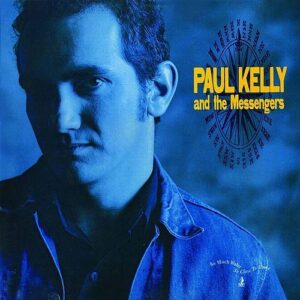
1989, 7.5/10
Country music’s in the DNA of Australian music. Australian music stars include Olivia Newton-John, Keith Urban, and Slim Dusty. There were hints of country in Paul Kelly’s earlier albums, but on So Much Water So Close To Home country is the predominant flavour. Kelly’s backing band were renamed The Messengers for all markets by this point. His voice is well suited to country, but it’s a little less imaginative than his previous albums, and the concentration of great songs is less than before.
Chief among the great songs is ‘Everything’s Turning to White’, the pseudo-title track. The song’s titular phrase, “so much water so close to home”, and narrative are taken from a short story from American writer Raymond Carver. There are other strong tracks – ‘Sweet Guy’ is written from the perspective of a domestic abuse victim, and features Los Lobos’ Steve Berlin on saxophone. ‘She’s a Melody’ is a largely successful attempt to capture the grandeur of contemporary U2. ‘Careless’ is pretty, while it’s surprising to learn Kelly wrote ‘South of Germany’, as it feels like a traditional folk song.
So Much Water So Close To Home is a little lacking in spark after a run of strong albums, but Kelly’s songwriting is largely impressive.
Comedy

1991, 8/10
Another double album bookends Kelly’s partnership with The Messengers. It’s not as strong as Gossip, but there are enough gems to justify wading through. It feels more relaxed than before. Kelly allows outside writers. Guitarist Steve Connolly wrote the pretty folk of ‘Leaving Her for the Last Time’, while there’s also a John Cale cover (‘Buffalo Ballet’).
The looser approach results in few throwaways. ‘You Little Sister (Is A Big Girl Now)’ is a slightly embarrassing rocker. ‘Little Boy Don’t Lose Your Balls’ is an odd closer, as is the hidden track ‘David Gower’.
But there’s plenty of great stuff too. ‘Brighter’ sounds like it could have been a hit, with a pretty piano introduction, lovely harmonies, and a pretty chorus. There are some excellent folk-tinged songs. ‘I Can’t Believe We Were Married’ is quintessentially Kelly, self-deprecating with some great lines (“Our houses were a shambles, our love conspiracy/Your hand was always down my pants”). There’s also the protest song ‘From Little Things Big Things Grow’, about the Gurindji Strike of 1966.
Comedy has some great tracks, an excellent final studio album for Kelly and the Messengers.
Hidden Things

1992, 9/10
The Messengers played their final show with Kelly in August 1991. But their final release was Hidden Things, a compilation of outtakes, b-sides, and radio performances. It’s unusual for a rarities collection to rate so highly, but this one’s terrific, capturing Kelly in a more relaxed mode.
Allowing other Messengers to take the lead vocal lends some variety. Connolly sounds sweet on ‘Hard Times’, but bassist Jon Schofield is less convincing on ‘Rock ‘n’ Soul’. He also uses other writers – the record opens with a cover of Australian Crawl’s ‘Reckless’, while ‘Yil Lull’ was written by Aboriginal musician Joseph Gaia.
Kelly’s social conscience is to the fore on Hidden Things. As well as ‘Yil Lull’, ‘Special Treatment’ also deals with Aboriginal issues. ‘Other People’s Houses’ tells of the child of a cleaner observing opulence when he accompanies his mother to work. Reflecting the content, the artwork is by indigenous artist Lin Onus.
There are also reworks of his back-catalogue – a full band version of ‘From St Kilda to Kings Cross’ and a waltz-time version of ‘Sweet Guy’. ‘Bradman’ and ‘Pastures of Plenty’ reappear after featuring as bonus tracks on Under the Sun. The best new song is pure autobiography, ‘When I First Met Your Ma’, about Kelly’s marriage to Hilary Brown.
Hidden Things is vibrant and full of great songs, one of Kelly’s best records.
10 Best Paul Kelly Songs (1985-1992)
Leaps and Bounds
To Her Door
Bradman
Everything’s Turning To White
When I First Met Your Ma
Brighter
You Can Leave Your Shoes Under My Bed (Post version)
Last Train to Heaven
Darling It Hurts
From St Kilda to Kings Cross
Wanted Man
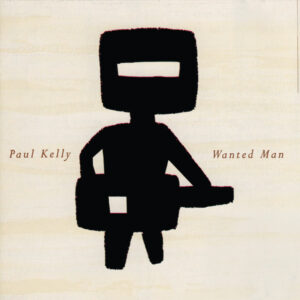
1994, 8.5/10
Breaking up the Messengers Wanted Man was Kelly’s second album, nearly a decade after Post. He embraces a roots-rock sound, sounding less hokey than some of The Messengers’ forays into country music. There was an unusually long gap between albums. As a result, Kelly had stockpiled a strong collection of songs.
A lot of these tracks sound like potential singles. ‘Song from the Sixteenth Floor’ is sweet and harmonised, while ‘We’ve Started A Fire’ also dabbles in radio-friendly pop/rock. But most of these songs are raw and rootsy.
Kelly hadn’t played many blues songs since Gossip, but he leans into the blues on ‘Ball and Chain’ and ‘Everyone Wants to Touch Me’. ‘God’s Hotel’ was co-written with Nick Cave, while ‘Summer Rain’ is delicate and pretty.
Wanted Man is a fine continuation of Kelly’s solo career, resuming after an almost-decade with The Messengers.
Deeper Water

1995, 7.5/10
Two months after releasing Wanted Man, Kelly was back in the studio recording its follow-up. He works with Randy Jacobs, previously of Was (Not Was). Jacobs has a production credit, and cowrote the title track as well as one of my favourite Kelly deep cuts. It’s less raw than Wanted Man, but it’s similar.
It feels more personal than Kelly’s usual storytelling – Madeleine’s Song’ was named for Kelly’s daughter, while the title track drew on Kelly’s childhood experiences growing up. ‘Difficult Woman’ was written about Australian soul singer Renee Geyer, who recorded the song the previous year. Lead single ‘Give In To My Love’ features a stinging guitar solo.
My favourites though, are Jacobs’ cowrites. The title track tells a story of growth from childhood to fatherhood, using the deep end of the pool as a symbol of increasing maturity. Kelly later said ” Deeper water to me meant danger, meant power, meant growing up … Everytime you move through the big rituals in life it’s like a move into deeper water.” My favourite deep cut here is ‘I’ve Been A Fool’, with a lovely chord sequence.
Deeper Water is another solid record in a career full of them.
Songs from the South: Paul Kelly’s Greatest Hits
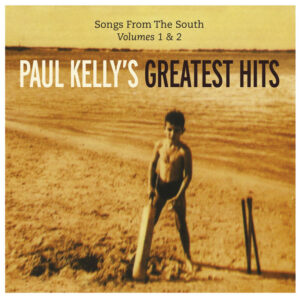
1997, 9/10
Kelly has so many albums that a compilation is a good option. This record captures his most beloved period. It ends with the 1997 non-album single ‘How To Make Gravy’, perhaps Kelly’s most celebrated song. There are two stripped-down reworkings from Kelly’s back-catalogue – ‘Everything’s Turning to White’ and ‘When I First Met Your Ma’. It doesn’t cover everything of note – there are plenty of good songs missing from the period, and there are also later highlights – but it’s a good one-stop shopping solution.
Words and Music

1998, 7/10
Kelly just keeps trucking along. Words and Music is more diverse than usual, but one of Kelly’s less impressive collections of songs covered on this page. He’s still trying new things, although his voice doesn’t suit the psychedelic-tinged ‘She Answers the Sun’, while ‘Beat of Your Heart’ is a slightly oddball excursion into electronic textures.
Even on his 11th album, Kelly’s still coming up with effortless tunes. ‘I’ll Be Your Lover’ is punchy and succinct. There’s another great protest song, ‘Little Kings’, opening the disc, while ‘Glory Be To God’ extols the virtues of women. There’s a cover of Hot Chocolate’s ‘It Started With A Kiss’, unexpectedly successful.
Words and Music is solidly enjoyable, but the least essential Kelly album since the early 1980s.
Smoke (with Uncle Bill)

1999, 6.5/10
…But Smoke is the least essential Kelly album of the 1990s. He works with Uncle Bill, a Melbourne bluegrass band. Their leader Gerry Hale had previously worked with Robyn Hitchcock and Men At Work’s Colin Hay. They do a good job of furnishing Kelly with a rootsy sound – the country-infused style he was trying to capture in the early 1990s is better served here. But it’s a confusing setlist – Kelly reworks some tracks from those early 1990s Messengers albums. They sound better here, but it makes Smoke feel like a compilation.
The rework of ‘I Can’t Believe We Were Married’ is welcome, as it’s one of Kelly’s best country-tinged songs. He takes another shot at a Ned Kelly-themed song, with the opener ‘Our Sunshine’. The closer ‘Shy Before The Lord’ uses Uncle Bill well, capturing a traditional bluegrass sound successfully.
Uncle Bill and Kelly sound great on Smoke. But it’s not one of Kelly’s stronger batches of songs, particularly with the retreads.
Kelly has recorded six studio albums between Smoke and Seven Sonnets & a Song. I’ve covered all his 20th century work, but there’s a gap here. The first missing album is …Nothing But A Dream, Kelly’s first top ten album in Australia.
Songs from the South – Volume 2 (Paul Kelly 98–08)

2008, 7/10
It made sense to release a sequel to Songs from the South. But the time period covered here is shorter, and the material weaker. In 2019, the two volumes of Songs from the South were condensed into a two-disc set, with new material added. The first volume was left untouched, while half of volume two was omitted to make room for post-2008 material.
Unusually for a compilation, Songs from the South Volume 2 often feels weaker than Kelly’s best studio albums. Unsurprisingly for a songwriter of Kelly’s calibre, there are strong moments. ‘Love Letter’, from his side-project Professor Ratbaggy, captures a soulful groove and a pure vocals from Kelly. As noted above, ‘I’ll Be Your Lover’ is effortlessly tuneful. Kelly’s leaning more on humour than before, on tunes like ‘Every Fucking City’ and ‘You’re 39, You’re Beautiful, and You’re Mine’. Closing track ‘Shane Warne’ is also funny, but pales in comparison to earlier cricket song ‘Bradman’.
Songs from the South 2 covers a relatively fallow period in Kelly’s career, and it’s a little unsatisfying.
Seven Sonnets and a Song

2016, 7/10
Kelly always wrote the music for his songs first, then put words to the music. He was asked to work on a classical project, where he put poems by Yeats and Dickinson to music. This led to Kelly setting music to some of Shakespeare’s sonnets. Kelly stated that “just about anything you want to say, Shakespeare’s said it already.” In an amazing coincidence, flamboyant Canadian singer-songwriter Rufus Wainwright released an album with nine Shakespearean sonnets in the same month. Seven Sonnets and a Song is brief, running under twenty minutes, but it’s strong.
As the title implies, one track features a lyric not written by Shakespeare – ‘My True Love Has My Heart’ is based on a poem written by Philip Sidney, an Elizabethan contemporary of Shakespeare. It’s delivered by Vika Bull, making a nice change of pace midway through the record.
It’s surprisingly diverse, with the opener ‘Sonnet 138’ laid back and jazzy, and ‘Sonnet 73’ with a country tang and a Dylan-like whine. The most memorable adaptation goes with Shakespeare’s most memorable sonnet, ‘Sonnet 18’ (“Shall I compare you to a summer’s day?”), with pretty finger-picked guitar and strings.
Seven Sonnets and a Song is short but sweet.
Death’s Dateless Night (with Charlie Owen)

2016, 7/10
Kelly was driving with Australian roots musician Charlie Owen to the funeral of a mutual friend. The pair discussed songs they’d played at other funerals. They turned their list into a concept album, a collection of rootsy, contemplative songs. The album takes its name from a line from Shakespeare’s Sonnet 30.
It helps that there are some great song choices. They dip back into the pre-rock canon with Stephen Foster’s ‘Hard Times (Come Again No More)’ and the traditional ‘Parting Glass’. There are lovely versions of comparatively more recent songs like Townes Van Zandt’s ‘To Live Is To Fly’ and The Beatles’ ‘Let It Be’. Kelly also reworks his originals, with new versions of ‘Meet Me in the Middle of the Air’ and ‘Nukkunya’.
Death’s Dateless Night is well executed, but it’s not as essential as Kelly’s best originals.
Life is Fine

2017, 8/10
Australian singer-songwriter Paul Kelly doesn’t have a lot left to prove with the 23rd studio album of his career. For 2017’s Life Is Fine, Kelly sought to return to the energy of his 1980s albums with The Messengers. Kelly also took piano lessons, and his piano work is at the centre of ‘I Smell Trouble’, while his access to different chord voicings on the piano informed other songs on Life Is Fine. It’s an excellent late-career effort, and it became Kelly’s first ever chart-topping album in Australia.
Kelly features guest lead vocalists on two songs on the album; Linda Bull fronts ‘Don’t Explain’, while Vika Bull is larger than life on ‘My Man’s Got A Cold’. Writing from a woman’s perspective allows Kelly a different angle as a songwriter; while the bluesy, dramatic ‘My Man’s Got A Cold’, with its unsympathetic portrayal of man flu, breaks the album’s flow, it’s an excellent song nonetheless.
Elsewhere, Life Is Fine has more conventional, but still excellent, Paul Kelly material. There are pretty acoustic songs like ‘Letter In The Rain’, ‘Petrichor’. and ‘Josephina’, while the excellent trio of upbeat songs that open Life Is Fine are a good basis for comparisons to Kelly’s early albums with The Messengers.
Life Is Fine is an excellent, high-quality effort from one of the world’s unheralded great songwriters, a 62-year-old with a great back catalogue who’s still writing strong material.
Nature

2018, 7.5/10
Kelly regards Nature as a companion piece to Life Is Fine, as again it’s often themed around nature. It became his second number one album in Australia. The songs came over a four-year period, and like Seven Sonnets and a Song, he put words by other writers to music. Nature opens with an adaptation of Dylan Thomas’ ‘And Death Shall Have No Dominion’, and also features poems by Sylvia Plath and Walt Whitman.
Nature does feel frontloaded, opening with a strong run of tracks. There’s pretty acoustic guitar on ‘Death Shall Have No Dominion’. ‘With The One I Love’ is fast-paced and hooky. ‘A Bastard Like Me’ is written about Aboriginal activist Charlie Perkins. The rest of Nature dials down, settling into Kelly’s most pastoral set of songs.
Nature continues Kelly’s late-career resurgence, and it’s impressive.
10 Best Paul Kelly Songs, 1994-
How To Make Gravy
Deeper Water
Love Letter
God’s Hotel
Petrichor
Song From The Sixteenth Floor
A Bastard Like Me
Little Kings
I’ve Been A Fool
Rising Moon
9 Comments
Leave a Reply
Related Pages
About
Aphoristic Album Reviews is almost entirely written by one person. It features album reviews and blog posts across a growing spectrum of popular music.
Review Pages
Read about the discographies of musical acts from the 1960s to the present day. Browse this site's review archives or enjoy these random selections:
Blog Posts
I add new blog posts to this website every week. Browse the archives or enjoy these random selections:

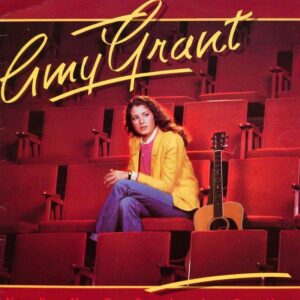
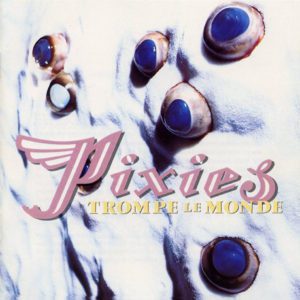
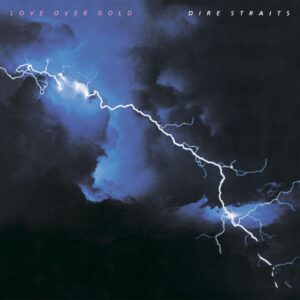
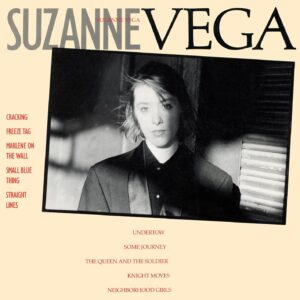
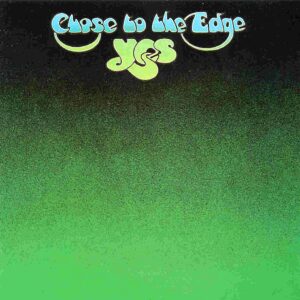
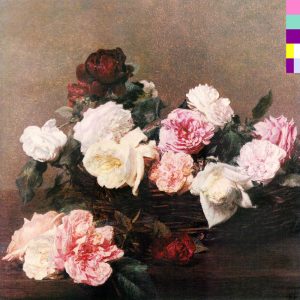
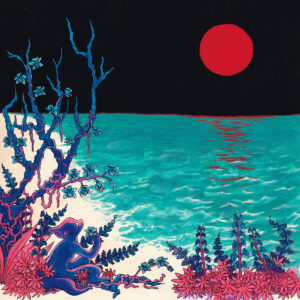
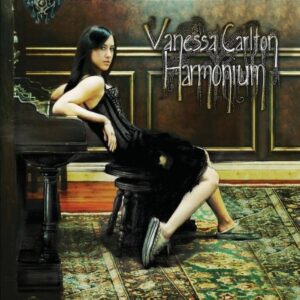
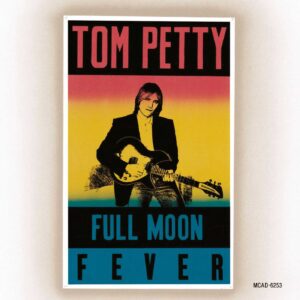
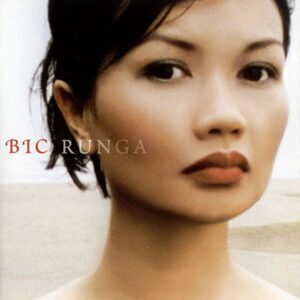
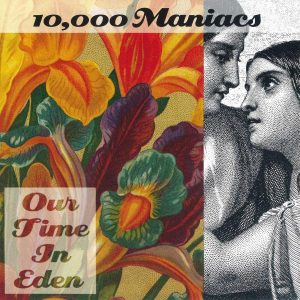
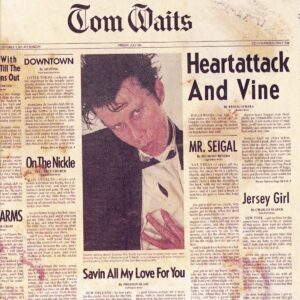
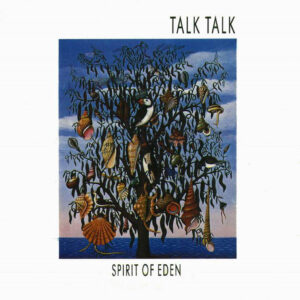
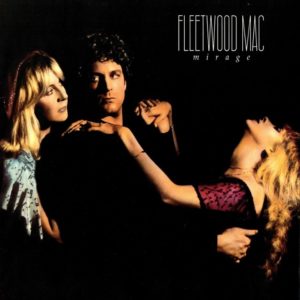
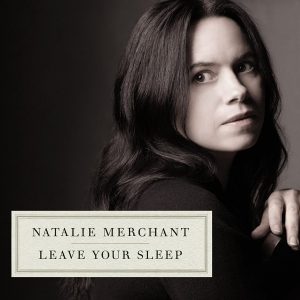
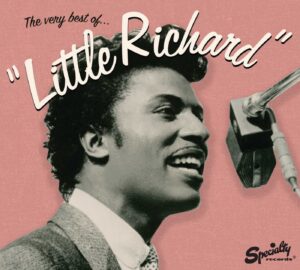
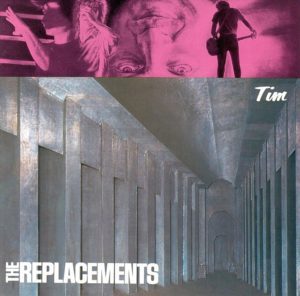
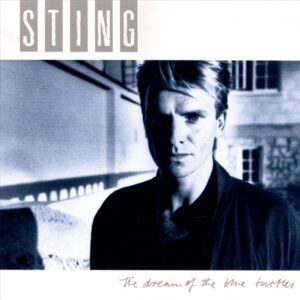
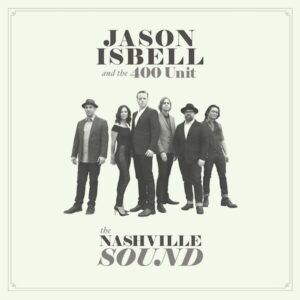




“He’s been releasing high quality albums for so long it’s easy to take him for granted” Well put and I couldnt agree more. He was well know at my place and still is. His live album ‘At the Continental and Esplanade’ has been on my spin list lately. He’s up there as one of my favorites. Good post.
I got the comment!
Great. I still have a poster from a concert I went to of his. It’s on my wall in my workout/music room.
And it’s gravy day in New Zealand.
What a great song Aph. I stay away from Xmas songs but you just nudged me to one of my favorites. Im going to spin it right now. Thanks. Problem with PK is he is so proficient and high quality good in my books.
What are your favourite Kelly records? Not sure if I’ll have the patience to listen to everyone.
‘Under The Sun’ was my intro so has a special place but after that it was going back to his earlier stuff and then keeping up with his new releases. I was on top of his music for a a few years then drifted (like I did with so many artists I like. Life gets busy). But my ear was always there and I’ve picked him up in the last years again. Like I said the “Live” album” is played a lot.
One of my PK discoveries a few years ago was on an album by Butch Hancock/Jimmie Dale Gilmour ‘Live In Australia’ Kelly guested on it with his song ‘Special Treatment’
I sent ‘Gravy’ to Max and he posted it. Later Aph.
Im going to send this to Max. Thanks fella.
Tried leaving a comment. Didnt take. all I said is I love the guy and his music.